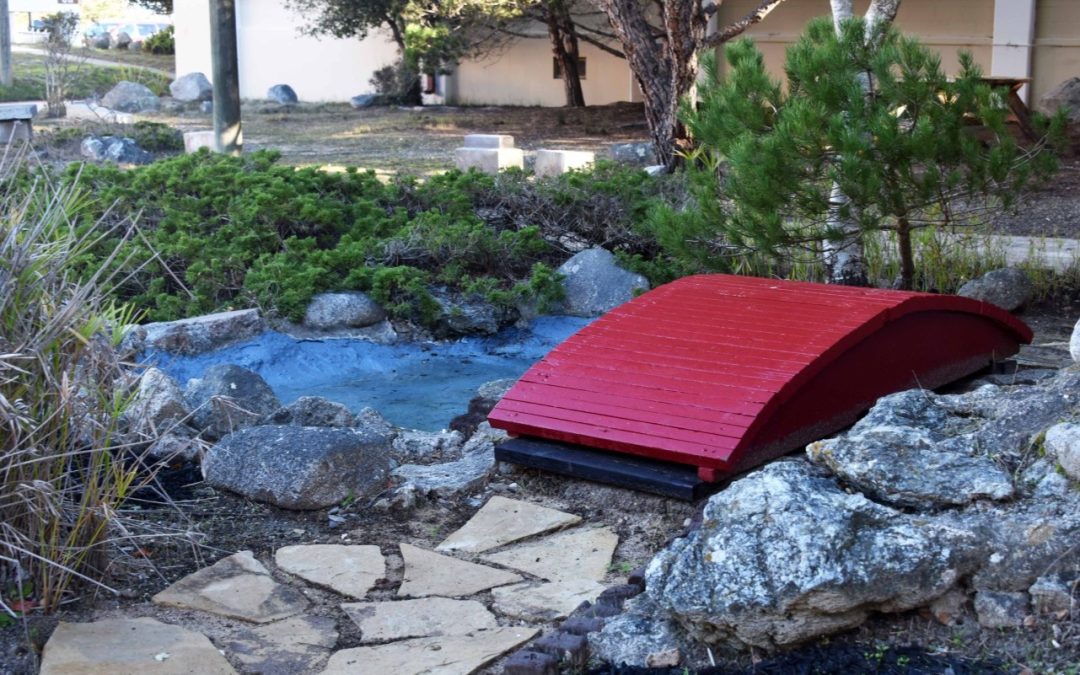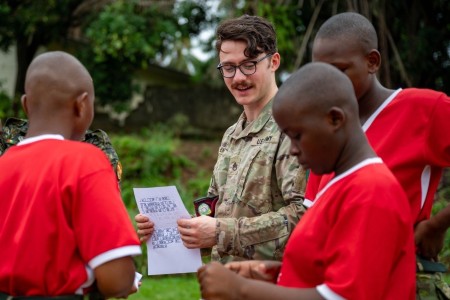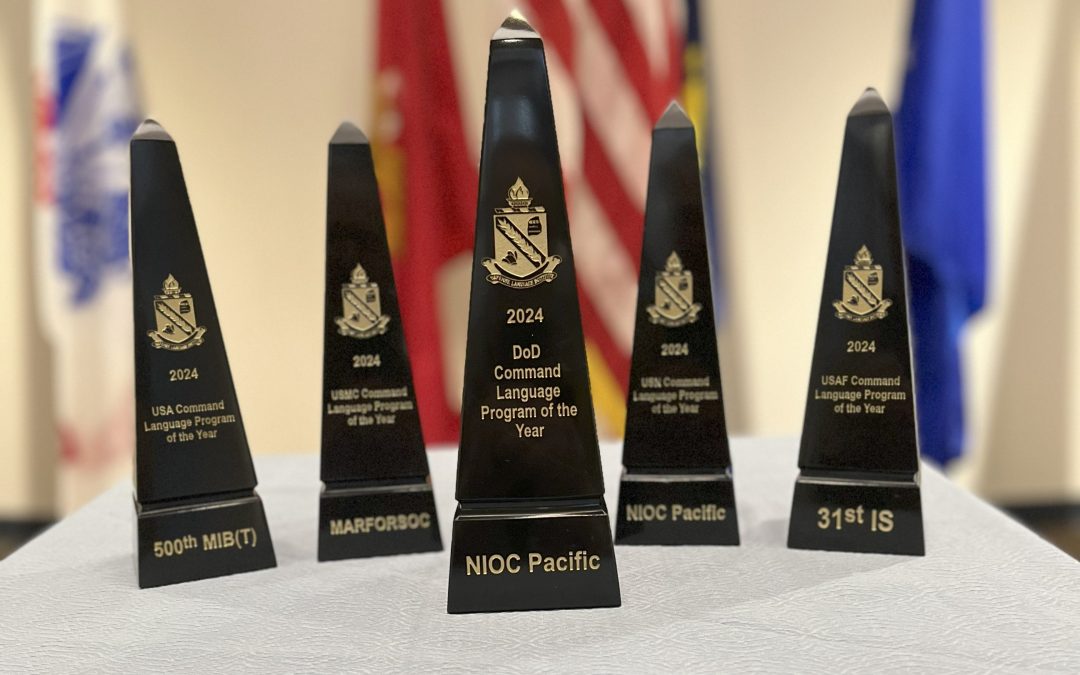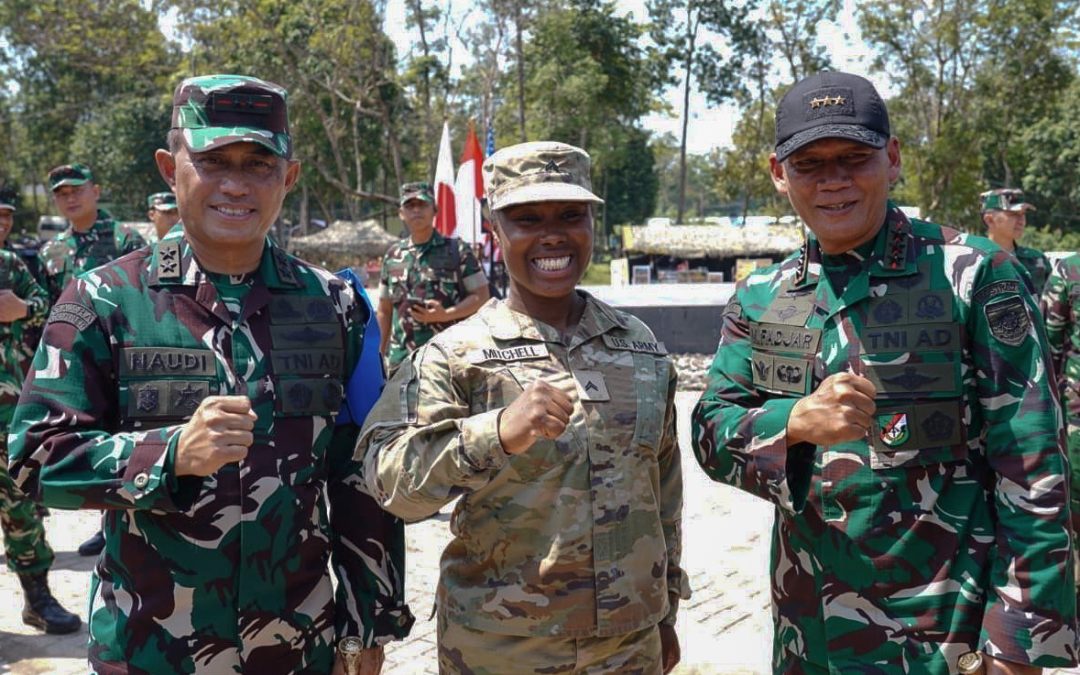By Patrick Bray
DLIFLC Public Affairs

Defense Language Institute Foreign Language Center Commandant, Col. David Chapman, addresses FAOs telling them that performance, reputation and a broad education with language skills is key to success in their careers.
MONTEREY, Calif. – Defense Language Institute Foreign Language Center Commandant, Col. David Chapman, told a group of Foreign Area Officers in training June 12, that performance, reputation, and the learning of foreign languages and culture are some of the most important things to keep in mind while building their careers.
“Performance trumps everything,” said Chapman, adding that reputation is equally as important because of opportunities to serve in unique positions at home and around the world.
“Your reputation has already started, right here today, and the first impression is really, really important,” said Chapman, who has served at U.S. Embassies in Moscow, Russia, Kiev, Ukraine, Belgrade, Serbia, and Athens, Greece, with an upcoming assignment at the U.S. Embassy in Paris, France. “It is serious business, guard your reputation.”
“Stay current, read. And I don’t mean only read what is assigned to you, but understand current events, about art, history. You have to be able to have breadth of knowledge, and language is the ice-breaker.”
DLIFLC hosted the Joint Foreign Area Officer Course June 8-12 at the Weckerling Center on the Presidio of Monterey. FAOs, who come from the four branches of the U.S. military, are regionally focused and are considered experts on political-military issues. Once their FAO training is completed, they are expected to serve as defense attachés, security cooperation officers and political-military planners worldwide.
Three speakers were invited to share their experience gained during their work either at combatant command headquarters, as attachés, or in special operations environments.

Keynote speaker Brig. Gen. Matthew L. Brand, Deputy Chief of Staff for Strategic Plans and Policy, NATO, addressed Army Foreign Area Officers June 8.
Keynote speaker Brig. Gen. Matthew L. Brand, Deputy Chief of Staff for Strategic Plans and Policy, NATO, addressed the Army Foreign Area Officers as a separate group on June 8.
“If you want to know what you’re doing for the Army, you must know what the Army is doing,” said Brand.
To do so, Brand encouraged the officers to read, study and become familiar with the joint publications and Army doctrine. As the largest FAO program, Army officers transition from their primary-career fields to a full-time FAO-career track. Brand also spoke about how to look and act as a FAO and what to expect in their future careers.
The next day, June 9, U.S. Marine Corps Maj. Gen. Rocco, Commanding General, Third Marine Aircraft Wing, spoke about the changing battlefield and the greater emphasis placed on regional expertise today.

U.S. Marine Corps Maj. Gen. Rocco, Commanding General, Third Marine Aircraft Wing, spoke about the changing battlefield and the greater emphasis placed on regional expertise today during the JFAOC on June 9.
“Those old (military) philosophies are long gone and that is exactly why you are here,” said Rocco. “You are here to take your regional expertise, language skills and boots on the ground experience — and provide it as resource to the geographic combatant commanders.”
Rocco was followed by Rear Adm. Colin Kilrain, a career Naval Special Warfare SEAL officer with multiple Joint Special Operation duty assignments. He is also a two-time graduate of the DLIFLC Spanish and German programs.
Though Kilrain was never a FAO, he reminded officers that everything is “connected in international relations,” a lesson he learned through his own experience in the Pacific, Middle East and Latin America.

Rear Adm. Colin Kilrain, a career Naval Special Warfare SEAL officer with multiple Joint Special Operation duty assignments, addresses FAOs on June 9.
Locally, the JFAOC normally takes place twice a year for future FAOs who either attend DLIFLC for language training or are in graduate school at the neighboring Naval Post Graduate School.
The concept of equipping military officers with regional expertise, language skills, and knowledge of U.S. and foreign political-military relationships dates back to 1889 when the U.S. sent permanent military attaches to London, England, Paris, France, Vienna, Austria and Saint Petersburg, Russia.




